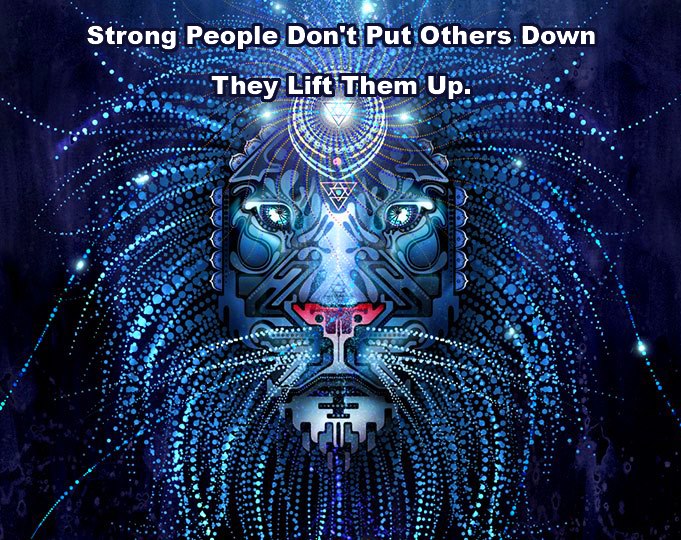A Small Primer on Abuse
A friend sent this to me a couple years ago when she was doing research for her Master's in Psych. I think it is important for people to know this given what we endured the past couple years here on the forum, because many of these and more were used in the Trump and climate change. I have set in blue the most egregious and obvious types that I have seen on the forum.
A lot of people in emotionally abusive situations don't have the words to describe what they're going through. It's partly why they end up being stuck in the situation for a longer period of time or end up blaming themselves. I had discussions with trauma survivors who said that they wished they knew the word for "gaslighting" earlier.
Anyway, these terms can apply to both an emotionally abusive childhood or an emotionally abusive romantic relationship. Not all of these are psychological terms but they're in enough use in contemporary language that people in support groups will probably understand you.
1. Gaslighting - When a person constantly makes you doubt your memories, judgment, and reality instead of acknowledging your version of truth. This makes it easier for them to blame you for something they did.
2. Projection - When a person doesn't react to who you actually are, but to their own internal feelings about themselves or others unrelated to you.
3. Triangulation - When a person intentionally creates a scenario where two other people end up fighting for his/her attention. This could be in a relationship or in a family, say siblings fighting for a parent's attention. The two other people end up blaming each other or tearing each other down instead of recognizing that the abuser is the architect of the situation.
4. Neglect - The absence of a need being satisfied adequately. Example, when a child's presence is never acknowledged. This is not always intentional, but it can be an invisible form of abuse.
5. Minimization - When the abuser downplays the severity of a negative event they triggered, or downplays the feelings that the victims has. For example, pervasive school bullying can be minimized by the abuser as "just a prank" and tells the victim that they're overreacting.
6. Informed consent - Adults agree to do something together before they actually go ahead and do it. If one party withholds information relevant to what is being agreed upon, then that is not informed consent. That is what's called a bait and switch, which is basically like getting scammed.
7. Personal boundaries - The mental, emotional, and physical limits we have around ourselves to protect us from harm. Usually emotional abusers push these limits or get angry if these are enforced, and assert that their wants are more important than your needs.
8. Narcissistic supply - People on the narcissistic personality disorder spectrum have a pathological need for attention from others. They will seek attention even if it is destructive towards others, because they don't see the separation between self and other, and cannot regulate their own emotional needs. They will regularly trigger events, confrontations, and provoke a reaction, scandal, and confuse people around them. And when they receive this attention, they will gather social information about involved parties to instigate another event, confrontation or scandal to repeat the process.
9. Grooming - When an emotional abuser tests a potential victim, by pushing his or her boundaries and seeing how far they can take things. Think of a frog being slowly boiled in a pot of water--grooming is turning the heat on. This is also when the victim begins to see red flag behaviour or has the gut feeling that something isn't quite right, but he or she may dismiss them ("Oh I was overreacting") or think that the abuser was just joking. This can also be the time for the abuser to plant seeds of doubt in the victim's mind about their own reliability, competence, ability to live happily without the abuser, who they can trust, and so on.
10. Golden child and scapegoat - This often happens in a household with a narcissistic parent. It's a form of triangulation where the parent pits the two children against each other, but the golden child is the favoured child that can do no wrong, while the scapegoat is the child where everyone's problems are projected on. The golden child will begin to mirror the narcissistic parent and also abuse the scapegoat to win the affections of the parent.
11. Isolation - Some emotional abusers will isolate the victim so that he or cannot depend on others or use other resources to protect his or herself, or have regular contact with healthy normal relationships to compare the abusive dynamics with. This can be more obvious in the form of financial control, or it could be more subtle and the abuser can successfully convince the victim to cut off ties to friends and family.
12. Hot and cold - It's pulling a Jekyll and Hyde. When a person acts inconsistently and oscillates between affectionate behaviour and either complete withdrawal or outright hostility. The emotionally abusive person acts unpredictably so the victim never knows where he or she stands, and the victim will work hard to seek the "good side" of the abuser.
There are a lot more terms of course, but I hope that this at least makes it easier for folks to understand invisible or insidious dynamics by being able to finally put a name to them.
If you're a victim, you cannot change an abuser and you are not responsible for their actions. All you can do is disengage. Unfortunately it's hard for some especially if the abuser is your family (assholes end up having kids after all, unfortunately), but being able to manage the level of contact can help. You are not alone.
If you see yourself taking part in some of these abusive behaviours, you might not be conscious of them. You might have grown up in a dysfunctional household that taught these behaviours. Maybe you were the golden child. You may not be 100% responsible for your destructive behaviours, but you are 100% responsible to change for the better for the sake of everyone around you. Even if you intend to change, remember that people you have mistreated in the past are under no obligation to forgive you or to remain in contact with you.
Stay safe out there, kids. It's a weird world out there. Remember, no one is entitled to your body, time, or spirit. Healthy friendships/romantic relationships/family dynamics are filled with respect and mutual care. People are not who they say they are or the promises they make, but how they consistently treat you in the here and now.
And remember you are not responsible for other people's destructive behaviours no matter how convinced they are otherwise. Don't set yourself on fire to keep someone else warm.



